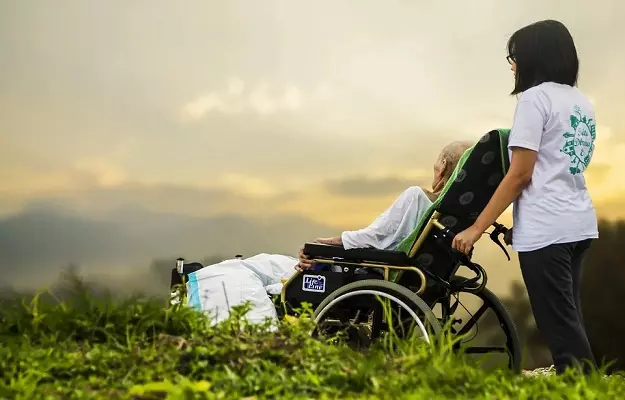Doctors have already concluded that people with pre-existing medical conditions like high blood pressure, diabetes, heart disease, lung disease and cancer are prone to get severe symptoms of COVID-19. As per medical professionals, cancer patients have a compromised immune system and that is the reason why they are vulnerable to this infectious disease.
Doctors further believe that people who are undergoing active treatment with chemotherapy or radiotherapy are at a higher risk of developing serious illness from COVID-19.
On 28 May 2020, US-based scientists associated with the Cancer Consortium Registry 19 published the findings of an ongoing study in The Lancet. In the article, titled "Clinical impact of COVID-19 on patients with cancer (CCC19): a cohort study", the researchers said that they observed a marked increase in all-cause mortality in cancer patients who also contracted COVID-19. They added that more research needs to go into understanding this data.
The researchers also listed some reasons why cancer patients may be more prone to COVID-19 and some reasons why they are more prone to severe illness if they do get COVID-19 infection:
- According to the researchers, cancer patients are more prone to catch the infection because:
- Cancer patients are often immunocompromised. This is because cancer therapies such as antineoplastic (anti-tumour) therapy and supportive drugs such as steroids suppress the patient's immunity.
- Cancer is known to have immunosuppressive properties of its own, too.
- The researchers pointed out that patients receiving anticancer therapy must also meet healthcare providers on a regular basis, which may also increase their risk of contracting the infection.
- Cancer patients are more likely to get seriously ill if they do contract the infection:
- Though people of any age can get cancer, the researchers pointed out that most cancer patients tend to be older. Age is also a risk factor for more serious illness if someone over 60 contracts the disease.
- Older patients are also more like to have comorbidities—other chronic conditions, like hypertension and diabetes. Comorbidities also increase the chances of serious illness if these people contract the infection.
According to the researchers, who studied 928 patients between 17 March 2020 and 16 April 2020, all-cause mortality (death for any reason) was higher in patients who had both COVID-19 and cancer. Further, they found no evidence to show whether the combination of hydroxychloroquine and azithromycin helped patients or made them worse. The use of hydroxychloroquine for COVID-19 has become hotly contested, with the World Health Organization halting its trial temporarily in May 2020.
Hydroxychloroquine is an anti-malaria drug that is being considered for use in COVID-19 treatment. Azithromycin is an antibiotic.
Of course, these are early findings in an ongoing cohort study. And as the researchers pointed out themselves, the cause of higher mortality needs to be studied in depth.
Separately, another research paper on COVID-19 and cancer, also published in The Lancet, showed that there was no reason to believe that cancer therapies like immunotherapy, hormonal therapy, targeted therapy, radiotherapy, cytotoxic chemotherapy or other anticancer treatment had anything to do with this increased mortality.
Indeed, this UK study with 800 cancer patients who also had symptomatic COVID-19, argued that the higher mortality could be attributed to older age, sex (male) and comorbidities (other health problems).
The article, "COVID-19 mortality in patients with cancer on chemotherapy or other anticancer treatments: a prospective cohort study", was based on the findings of the UK Coronavirus Cancer Monitoring Project Team.
Blood cancer and bone marrow cancer
Though there are no certain reasons behind this, doctors believe that people who are suffering from blood cancer or bone marrow cancer are more prone to get severely affected by the disease.
Stem cell therapy is an essential part of cancer treatment. DKMS is a Germany based non-government organisation that provides bone marrow to those with blood cancer. The CEO of DKMS UK stated that they have been facing difficulties in providing and providing stem cells to different countries due to the lockdown and travel restrictions.
The problems are exacerbated as stem cells remain viable for only 72 hours after being donated and should be transplanted within that time period.
Oncologists are facing a lot of problems especially with those who are actively getting treated with intravenous chemotherapies or radiotherapies. Moreover, the supply of medication has also been hampered due to the lockdown.




























